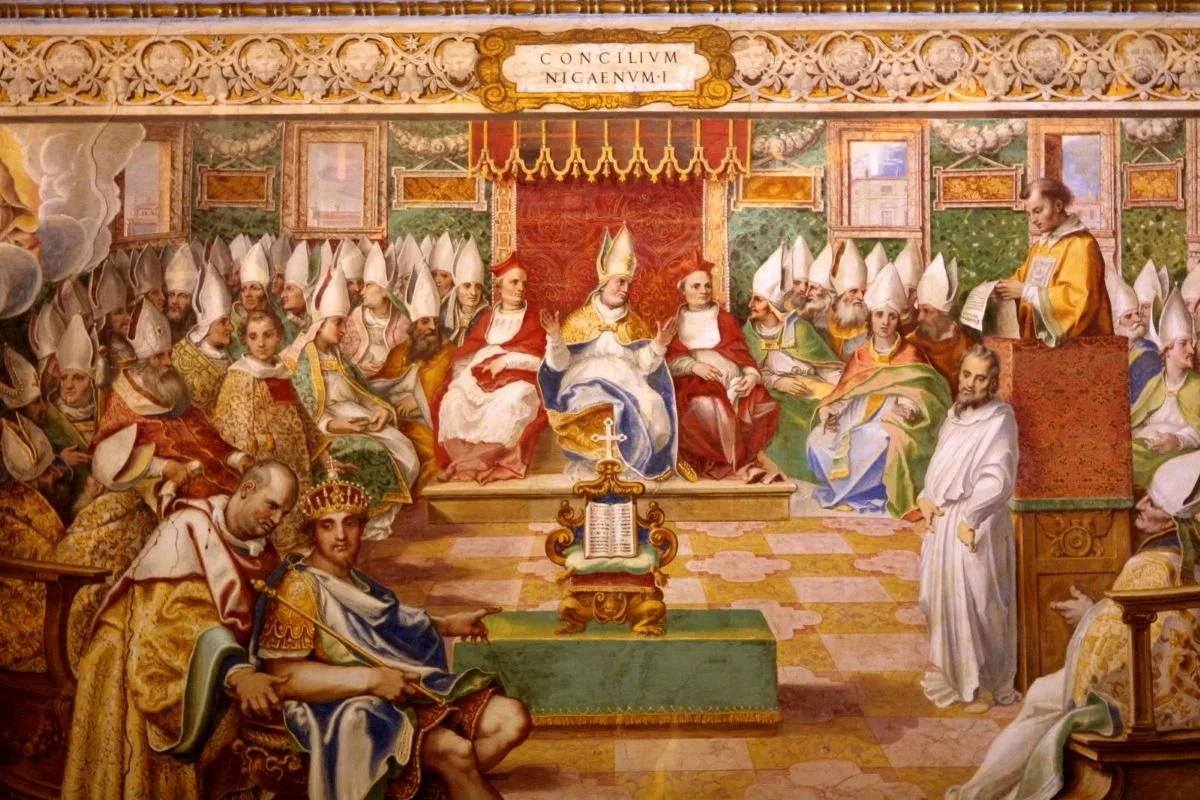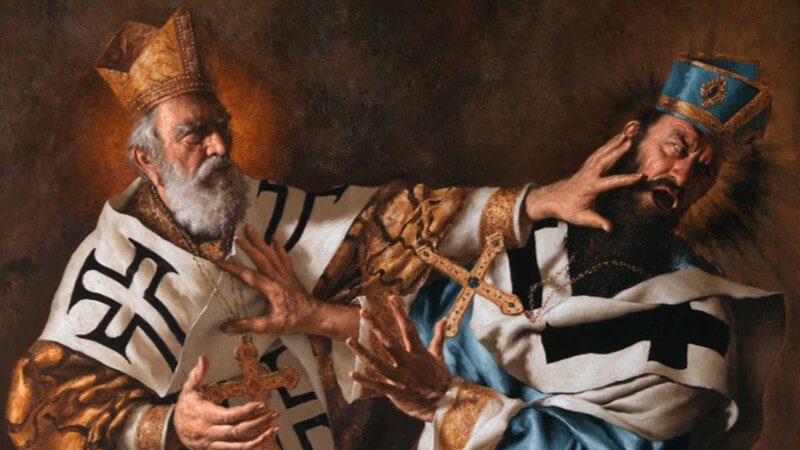The Anniversary of Nicaea - 1700 Years of Christ and Our Confession
“I believe in one God, the Father almighty, maker of heaven and earth, of all thigns visible and invisible.”
🚧 This post is a brief detour from my usual red teaming and cybersecurity content to explore a theological topic close to my heart: hermeneutical frameworks and how we read the Bible as one unified story.
1700 Years of Nicaea
Situation in modern-day Iznik, Turkey, Nicaea was a beautiful town in the perfect spot. It was less than one-hundred miles from the metroplics of Constantinople. Situation along the coast of a large and peaceful lake, this city would host the first churchwide ecumenical council: the Council of Nicaea.
In 325 A.D., bishops from across the Roman Empire gathered (with the presence of Emperor Constantine) to answer on question that strikes at the heart of the Christian faith: Who is Jesus Christ?
The controversy was not about whether Christ was important but whether He was truly God of God, Light of LIght, very God of very God. Arius, a presbyter in Alexandira, had argued that the Son was a created being–higher than us, but not equal with the Father. In other words: there was a time when the Son was not.
Standing firmly against Arius was a young deacon named Athanasius of Alexandria. Though not yet a bishop, Athanasius would become the great defender of Nicaea, insisting that if Christ were not fully God, then He could not truly save. His famous maxim, “That which He has not assumed, He has not healed,” captured the heart of the debate: only one who is fully divine and fully human can bring fallen humanity into fellowship with God.
Therefore, the Council of Nicaea, after prayer, debate, and the search of Scripture, responded with a resounding no to Arius’ claims. The Son is not a creature, but the eternal Son of God, of the same essence (homoousios) with the Father. In declearing this, they were not inventing doctrine but safeguarding the gospel.
Why Nicaea Matters in 2025
1700 years later, the Nicene confession still defines orthodoxy. Every generation faces fresh challenges that press against the boundaries of biblical Christology:
- Some reduce Jesus to a moral teacher, a prophet, or an example of love
- Others emphasize His humanity in ways that diminish His divinity
- Still others attempt to divide the Trinity, as if the Father acts apart from the Son and the Spirit
Nicaea reminds us that the gospel collapses if Christ is less than God. Only God can save. If Christ is not fully God, then His death is not sufficient, His resurrection is not victorious, and our worship is idolatry.
Christ is the Triune Godhead
The council of Nicaea does not just affirm Christ’s divinity in isolation. It places Him rightly within the Triune Godhead. The Father eternally begets the Son. THe Son is eternally begotten, not made. And the Spirit eternally proceeds.
“If all things are out of the Father, they are through the Son (1 Corinthians 8:6). This applies in the natural sphere, where all things are created and maintained through the Son (John 1:3; Hebrews 1:2,3)”
- Louis Berkhof, Systematic Theology
This eternal life of GOd is the foundation for salvation. The Son who is with God and is God (John 1:1) is the very one who became flesh (John 1:14). In Him, humanity is brought into fellowship with the Trinity. Salvation is not simply a legal transaction but a participation in the divine life, by grace, through union with Christ.
Living Nicene Faith Today
Anniversaries tempt us toward nostalgia, but hte Nicene Creed is not a relic–it is a confession for today. To confess Christ as true God from true God is to:
- Worship Rightly: We direct our praise to the Son alongside the Father and Spirit
- Preach Clearly: Our message is not moral improvement but divine rescue by the God-man
- Live confidently: Our salvation rests not on shifting sands but on the eternal Son who took on our flesh
Conclusion
1700 years on, Nicaea calls the church to hold fast to the confession that Jesus Christ is Lord–coequal, coeternal, and consubstantial with the Father and the Spirit. This is not abstract theolog; it is the very heart of the good news. For in Christ, the eternal Son, we behold the glory of GOd and the promise of our redemption.
“We belive in one Lord Jesus Christ, the only-begotten Son of God … begotten, not made, beign of one substance with the Fahter.”
To view the full Nicene Creed, click here.
Athanasius of Alexandria
Contra Mundum. Code Obscurum.


